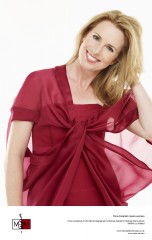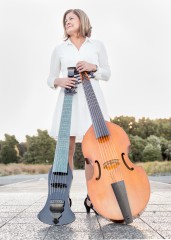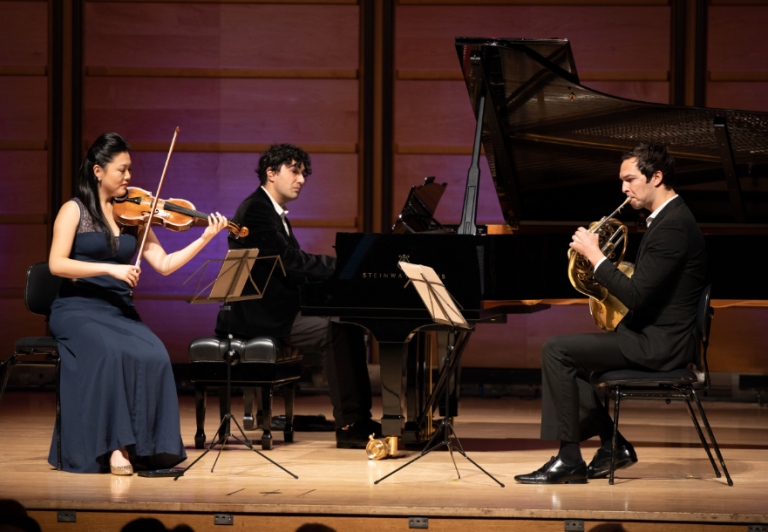Concert Review: Raising Sparks/Australia Ensemble@UNSW

Raising Sparks
The Australia Ensemble
John Clancy Auditorium, University of New South Wales,
March 14, 2015
Raising Sparks was the first subscription concert by the Australia Ensemble for 2015. This was a delightful presentation of 20th century chamber music was performed by core members, Dimity Hall and Dene Olding (violins), Irina Morozova (viola), Julian Smiles (cello), Geoffrey Collins (flute) and Ian Munro (piano), joined by associate artist David Griffiths (clarinet), invited guest harpist, Alice Giles and mezzo-soprano Fiona Campbell.
Ravel’s Introduction and Allegro for harp, flute, clarinet and string quartet (1905) is a virtuosic concertino for harp. Albert Blondel, director of French instrument manufacturer Erard, commissioned the work, which intended to demonstrate the full capabilities of the new double-action pedal harp. The introduction begins delicately with flute and clarinet, answered by the strings with a somewhat mysterious pentatonic melody, before the harp enters with billowing chords across its range. Ravel’s orchestration for this combination of instruments is exquisite. The string quartet provides layers of texture, with solo melodies echoed by the flute and clarinet. Alice brilliantly executed the impressive cadenza towards the end of the Allegro. This virtuosic composition would have most certainly made the impression that was intended, as the double-action pedal harp superseded the chromatic harp that was used at that time, and is still used in performance today.
In his Harp Quintet written in 1919, Arnold Bax treats the harp more as equal member of the ensemble than as soloist. Astutely, Bax wrote this work in keys that showcase the harp’s resonant strings. The second section is skilfully written with the harp resonating over muted strings. The final section requires the harp to play much more powerfully to be heard over the full texture of unison strings. Such symphonic playing comes naturally to this ensemble, evident from their finely executed phrasing and blending of timbres.
The Piano Trio in D minor Op. 120 (1922-3) was one of the last works written by Gabriel Fauré. The simple melodies of this piece are evenly shared between the three instruments. The third movement recalls a phrase from Leoncavallo’s opera Pagliacci – a skipping rhythm – interspersed between instruments. One cannot be sure whether the intentional use of this figure was in tribute or in playful jest.
The last work on the program was Raising Sparks for mezzo-soprano, flute, clarinet, harp, piano and string quartet (1997) by James MacMillan. For this item, the ensemble was conducted by David Stanhope. The Nash Ensemble commissioned this cycle of six songs – settings of poems by Michael Symmons Roberts inspired by Jewish mysticism. The vocal line incorporated a range of writing devices to depict elements of the poems’ stories, such as incantations, spoken or whispered words and melismata. All of which, Fiona Campbell sang with impeccable technique.
A well crafted performance by the entire ensemble.
Alison Evans for SoundsLikeSydney©.
Alison Evans is a freelance bassoon player, teacher and chamber music performer with the Sirius Chamber Ensemble. She holds post-graduate degrees in music performance and is currently completing her doctorate at the University of Sydney.
This performance was recorded by ABC Classic FM for broadcast on Thursday March 19, 2015 at 9.30pm.







